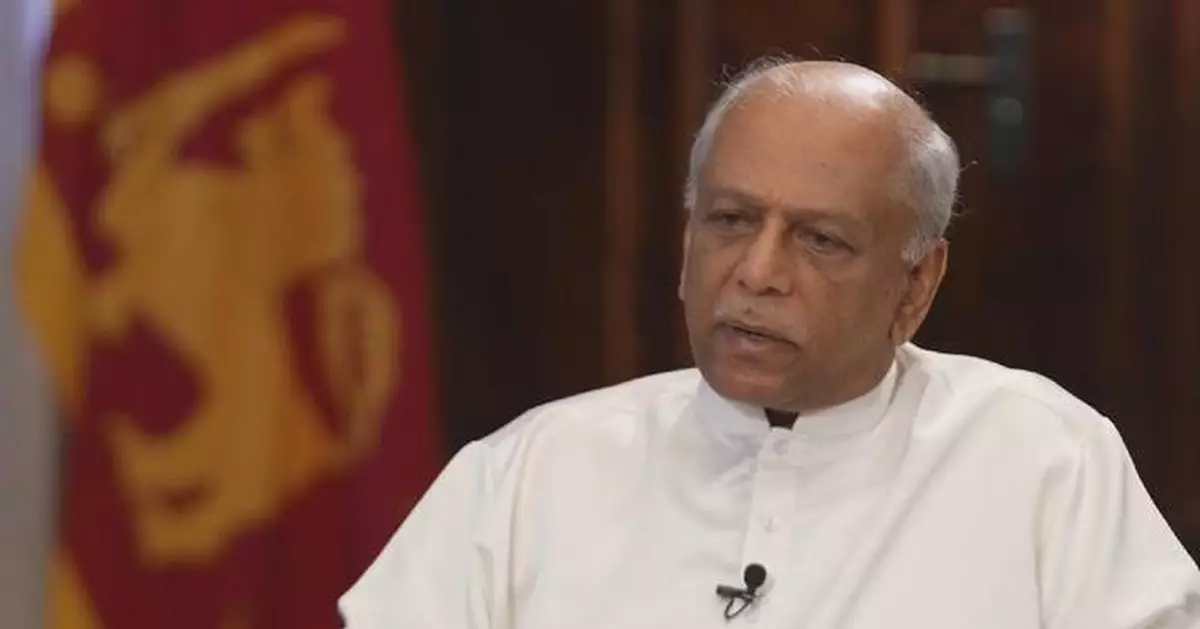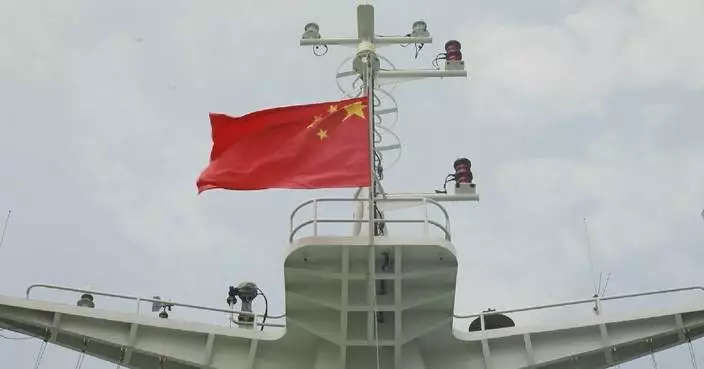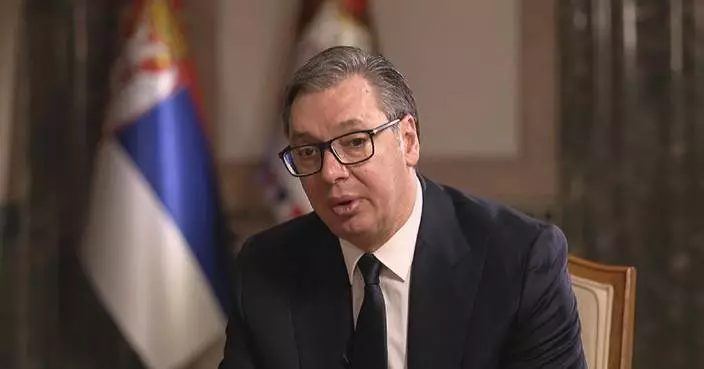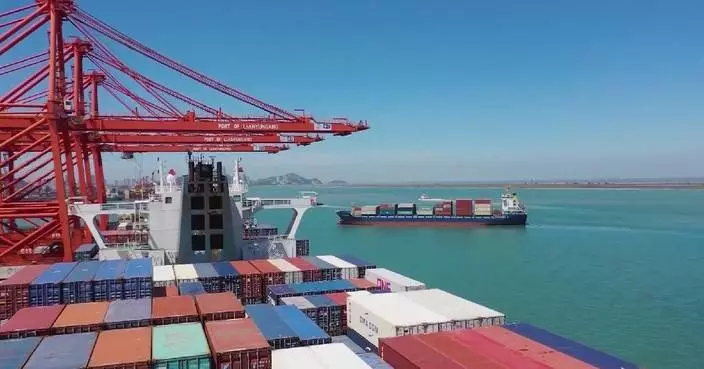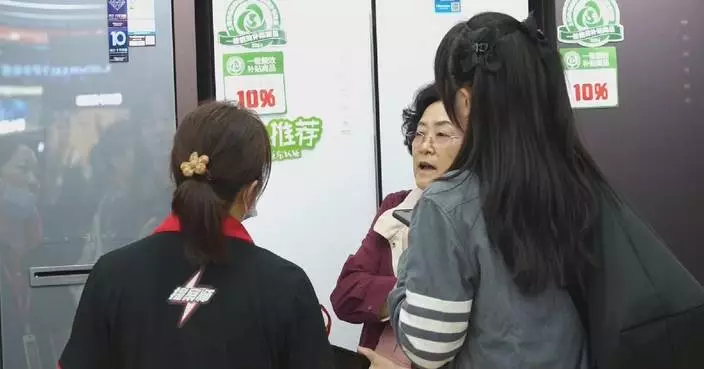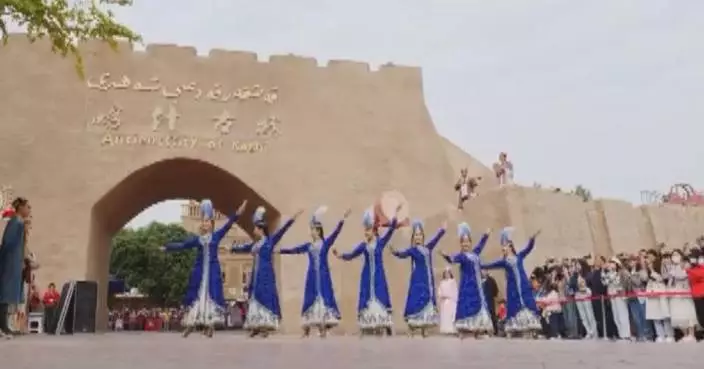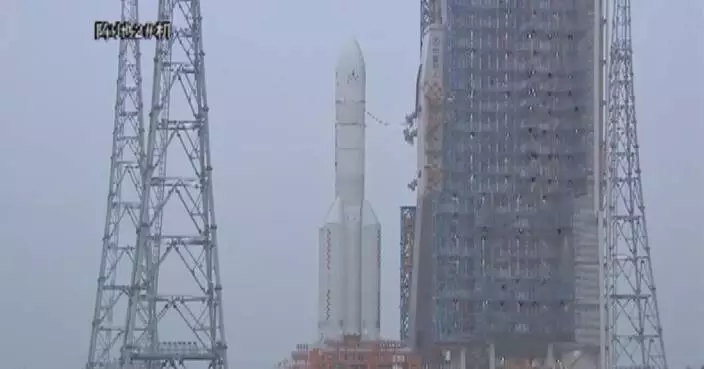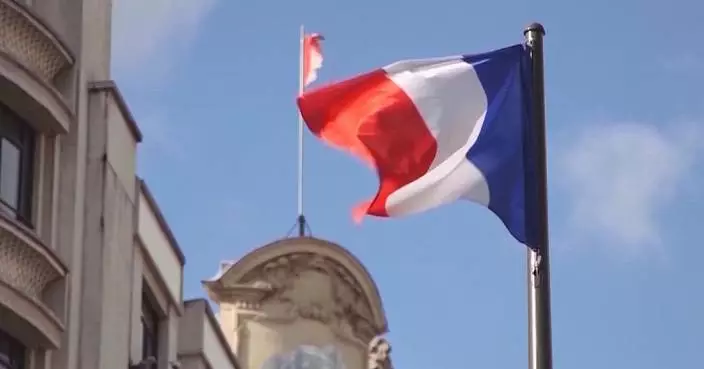Sri Lanka, which has long enjoyed friendly relations with China, is set to obtain more development opportunities from the China-proposed Belt and Road Initiative (BRI), Sri Lankan Prime Minister Dinesh Gunawardena said.
The prime minister made the remarks in an exclusive interview with China Global Television Network (CGTN) in Shanghai on March 29, during his official visit to China from March 25 to 30.
When asked about relations between Sri Lanka and China, he talked about two important events. The first was the signing of the Rubber-Rice Pact in December 1952 when China needed to import rubber and other supplies and Sri Lanka, which sees rubber as a key export, dealt with the a rising price of rice and a slump of rubber price.
The other event was the establishment of diplomatic ties between the two countries in 1957.
"Our leaders have associated with the leaders of China. We understand China's path. Sri Lanka signed the Rubber-Rice Pact amid various pressures not to. It's not only an agreement, it's a new chapter in economics. China has proved to be that it is a great nation of the world, strong, developed in all areas, all fields," Gunawardena said.
The prime minister said Sri Lanka was bold and decisive in establishing diplomatic relations with China in 1957 despite challenges.
After reminiscing about the history, Gunawardena shared his insights about the two country's ongoing partnership, including the development of Hambantota Port and Port City Colombo, which are flagship projects under the BRI cooperation framework.
Hambantota used to be one of the poorest regions in Sri Lanka, with economic activity restricted to artisanal fishing and seasonal agriculture. But the emergence of Hambantota Port has provided many opportunities for local entrepreneurs.
"China accepts Sri Lanka's future progress and development, new areas of cooperation. Hambantota Port, at the tip of our country. Beyond the Hambantota Port, it is the Indian Ocean and no other country, no other island, right down to the South Pole. Please remember, Sri Lanka also looks forward to developing Hambantota Port," he said.
In 2014, Chinese President Xi Jinping visited and inaugurated the Colombo Port City project. During a meeting with Dinesh Gunawardena in Beijing earlier in March, Xi stressed the high-quality Belt and Road cooperation between the two countries.
Gunawardena shared his expectations on the Colombo Port City project.
"President Xi came to Sri Lanka and laid the foundation for the most challenging project Sri Lanka has embarked on, that is the Colombo Port City development. Two weeks ago, we embarked on the construction of the financial center which will play a major role in the Colombo Port City development," he said.
Noting that the Colombo Port, which connects Sri Lanka to Singapore and the Gulf region, is one of the most competitive ports in South Asia, Gunawardena said the financial center is set to provide Sri Lanka with more financial tools to respond to emerging challenges and attract more investments.

Sri Lanka expects more development opportunities from China's BRI: Sri Lankan PM


